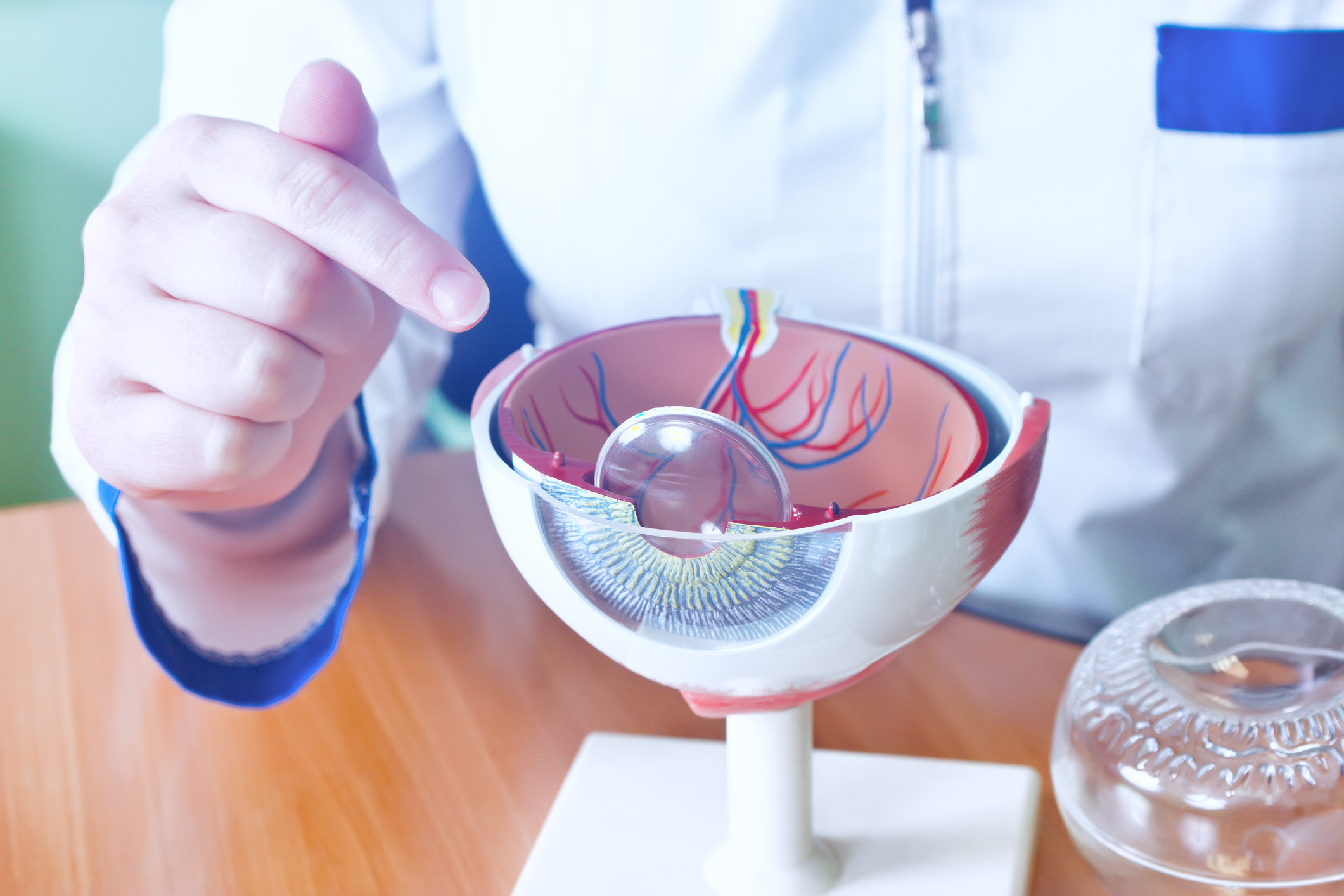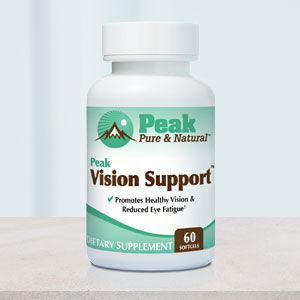Get Easy Health Digest™ in your inbox and don’t miss a thing when you subscribe today. Plus, get the free bonus report, Mother Nature’s Tips, Tricks and Remedies for Cholesterol, Blood Pressure & Blood Sugar as my way of saying welcome to the community!
Why the link between cataract surgery and decreased dementia?

According to the World Health Organization, more than 55 million people worldwide are currently living with dementia. Alzheimer’s disease contributes to at least 60 percent of these cases.
Dementia is currently the seventh leading cause of death among all diseases and one of the major causes of disability and dependency among older people globally.
Science is engaged in an ongoing attempt to get to the root causes of dementia and to slow down this global epidemic.
What if, by improving your vision, you could also lower your dementia risk?
According to some very recent research, this may very well be the case.
Cataract surgery lowers risk of dementia
A team of researchers at the University of Washington, led by ophthalmologist Dr. Cecilia Lee, wanted to find out whether older adults who have cataracts removed are also lowering their risk of developing dementia, compared with people who do not undergo cataract surgery.
To test their theory, the team analyzed data from the Adult Changes in Thought Study, a long-term cohort study started in 1994 that examines the development of dementia.
They took their data from a group that included 3,038 participants over 65 years old who were diagnosed with either cataracts or glaucoma. None had been diagnosed with dementia when the study began.
Those who underwent cataract surgery were almost thirty percent less likely to develop dementia in general, or Alzheimer’s in particular, for the next 10 years at least.
In contrast, when comparing those who did or did not undergo surgery for glaucoma — a procedure that can help halt further vision impairment, but does not improve it in the same way that cataract surgery does — no such change in risk for dementia was observed.
Why just cataract surgery?
While this is an exciting development, and a possible avenue for reducing dementia risk, the question remains: why did cataract surgery lower risk so dramatically, while glaucoma surgery showed no such association?
Dr. Lee and her team have several answers they’d like to explore in future research.
First, it’s well known that dealing with visual impairment in old age can lead to social difficulties, leading a person to withdraw from social life and friends and family, thus reducing their physical activity. All of these factors are associated with cognitive decline.
Another possibility is that the specific way in which cataracts impair vision could lead to specific changes in the brain, and that these changes may speed up some of the mechanisms that cause neurons to work less efficiently, leading to cognitive issues in old age.
Finally, the team hypothesizes that it may have something to do with the improvement in the quality of sensory input traveling from the eyes to the brain following cataract surgery.
“Some special cells in the retina are associated with cognition and regulate sleep cycles, and these cells respond well to blue light,” says Dr. Lee. “Cataracts specifically block blue light, and cataract surgery could reactivate those cells.”
What to do about your vision
“This kind of evidence is as good as it gets in epidemiology,” says Dr. Lee. “This is really exciting because no other medical intervention has shown such a strong association with lessening dementia risk in older individuals.”
So what does this mean for you?
If you’re starting to experience decreased vision, are having trouble driving at night, or start seeing halos around bright lights, then Dr. Lee recommends you be evaluated by an ophthalmologist (not an optometrist).
An ophthalmologist is a medical doctor who performs cataract surgery, and who can evaluate you to determine if you’re a good candidate for the procedure.
It may also do you good to feed your eyes…
According to Steven G. Pratt, MD, an assistant clinical professor of ophthalmology at the University of California, “There is an overwhelming amount of evidence to show that lutein and zeaxanthin play a protective role in helping to protect the eye against cataracts and macular degeneration.
“Lutein and zeaxanthin are not the entire picture because they work in concert with many other antioxidants and other carotenoids; however, certainly without those two nutrients, the eye is in big trouble. You need those nutrients to help prevent oxidative stress in the back of the eye and to prevent the damage from blue light hitting the macula. Among other things, lutein and zeaxanthin function as a blue-light filter.”
Natural blue light is more beneficial to the eyes, whereas artificial blue light, such as we’re exposed to from electronic devices is not.
Editor’s note: While you’re doing all the right things to protect your brain as you age, make sure you don’t make the mistake 38 million Americans do every day — by taking a drug that robs them of an essential brain nutrient! Click here to discover the truth about the Cholesterol Super-Brain!
Sources:
Cataract Surgery Linked to Lower Risk of Developing Dementia, Even 10 Years Later – Science Alert
Association Between Cataract Extraction and Development of Dementia – JAMA Internal Medicine
Study: Cataract surgery linked with lessened dementia risk – University of Washington Medicine / Newsroom
Adult Changes in Thought Study – www.maelstrom-research.org
Study: lutein protects the eye against AMD and cataracts – Healio













